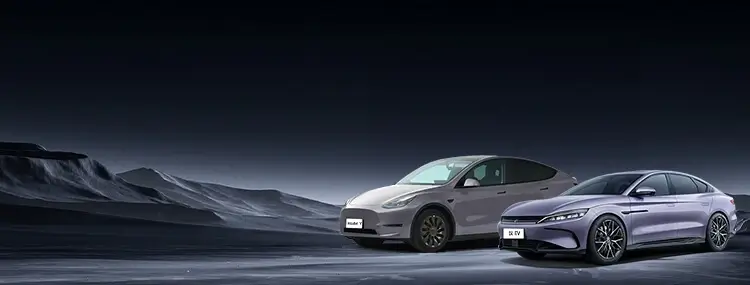
In the heart of Guangzhou’s tech district, a sleek electric sedan navigates rush-hour traffic effortlessly, its autonomous driving system calculating routes in real-time. This is not just a car—it’s a XPeng, a brainchild of China’s new generation of tech innovators, built to democratize intelligent mobility for the digital age. Founded in 2014 by He Xiaopeng, a serial entrepreneur with Silicon Valley ambitions, XPeng has emerged as a trailblazer in smart EVs, fusing cutting-edge software, hardware, and an unrelenting focus on user experience.
He Xiaopeng, co-founder of UC Browser (once China’s dominant mobile browser), embodied the spirit of the internet revolution. After selling UC to Alibaba in 2014, he turned his sights to a new frontier: smart electric vehicles. “Cars are the ultimate mobile devices,” he declared, envisioning a future where vehicles learn, adapt, and grow like smartphones. With a team of engineers and AI experts, XPeng Motors was born—a name reflecting youth (“Xiao” meaning “young”) and relentless momentum (“Peng,” a mythical bird soaring skyward).
While others focused on horsepower, XPeng bet on intelligence. Its first model, the G3 SUV (2018), stunned the market with an AI-powered cockpit and a roof-mounted camera for gesture-controlled selfies—a hit among tech-savvy millennials. But the true breakthrough came with the P7 sedan (2020). Dubbed “the Tesla challenger,” the P7 boasted NVIDIA-powered autonomous driving, a 706 km range, and over-the-air (OTA) updates that transformed the car’s capabilities post-purchase.
Central to XPeng’s DNA is its XNGP (Xpeng Navigation Guided Pilot) system. Combining lidar, cameras, and high-definition maps, XNGP enables hands-free driving on highways and city streets—a moonshot project rivaling Tesla’s Full Self-Driving. Unlike traditional automakers, XPeng releases beta features to users, crowdsourcing data to refine its algorithms. “Our cars get smarter every day,” says CEO He.
XPeng’s journey wasn’t without turbulence. In 2019, critics dismissed its autonomous claims as hype. A 2021 lawsuit with Tesla over alleged code theft tested its reputation. Yet XPeng doubled down on transparency, opening R&D centers in Silicon Valley and hiring top AI talent. By 2023, its XNGP system achieved Level 4 autonomy in pilot zones, earning government certification—a first for Chinese automakers.
User loyalty became its secret weapon. Through the XPeng App, owners customize driving modes, stream concerts in-vehicle, and even vote on software upgrades. One fan famously live-streamed a 3,000-km road trip using only XNGP, declaring, “This isn’t a car; it’s my co-pilot.”
While rooted in China, XPeng eyes global domination. In 2023, it launched the G9 SUV in Europe, a model featuring ultra-fast charging (10-minute charge for 300 km) and multilingual voice assistants. Partnerships with Uber and local dealers in Norway and Sweden underscored its “glocal” strategy—blending Chinese tech prowess with regional needs.
But XPeng’s boldest move lies in flying cars. Its AeroHT subsidiary successfully tested a modular electric flying vehicle in Dubai, aiming to launch a commercial model by 2025. “Mobility isn’t just about roads,” says He. “It’s about reimagining the skies.”
XPeng’s story mirrors China’s rise as a tech superpower—ambitious, agile, and unafraid to disrupt. From its Guangzhou labs to Oslo showrooms, the brand embodies a generation that views cars not as status symbols, but as platforms for innovation. As He Xiaopeng often quips, “We’re not building cars; we’re building iPhones on wheels.” In the race to redefine mobility, XPeng isn’t just keeping pace—it’s setting the rules.
Key Themes to Highlight:
Notes:The cars will be shipped from China within 3-7 days.